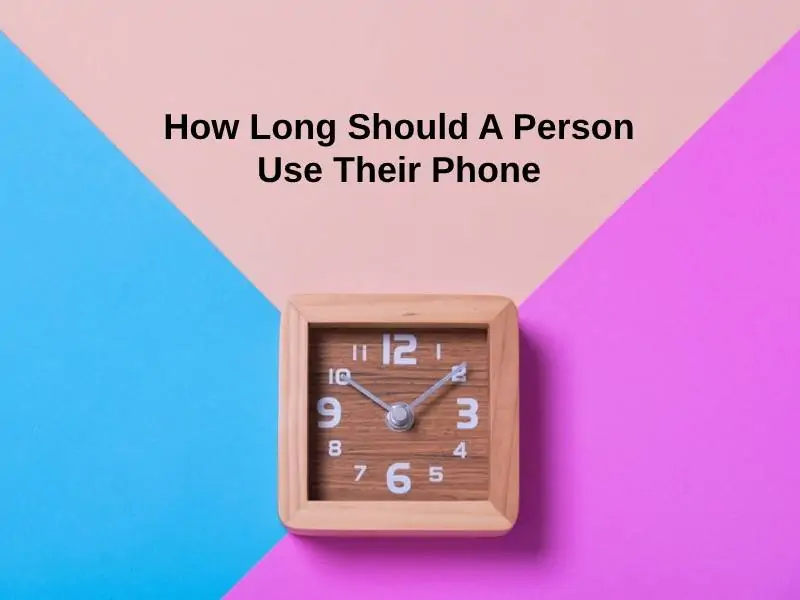Exact Answer: Two Hours a Day
In the fast-paced life, where almost everything is shifted online – from work to placing the order for groceries- it is almost natural that people do not know where or how to limit their screen-times.
Smartphones have become the go-to source for people all over the word for their news consumption, with a new “breaking news” notification every other minute, or for searching up where to have dinner for the night.
While the average amount of screen time for adults is 11 hours, health technicians deem it rather difficult to limit the screen time when everything is shifted online, and people cannot quit their daily routine. The screen time is different for different age groups, depending on their capacity and work load associated with the screen.
According to the World Health Organization (WHO), there should be no screen time for toddlers, from the age of 18 to 24 months. For the children who are preschoolers, of age 3-4 years, one hour of phone usage is considered enough. For the children of 6-10 years and 11-13 years, screen usage should be at 1.5 hours and 2 hours respectively. It is to be noted, that after the age of 13, the children and teenagers should also limit their screen time to 2 hours per day, and if are unable to do so, should take breaks in between as to rest their eyes and not cause fatigue.

How Long Should A Person Use Their Phone?
| Age Of The Person | Number of hours to use phone |
| 18-24 Months | No Screen Time |
| 3-4 Years | 1 Hour |
| 6-10 Years | 1.5 Hours |
| 11-13 Years | 2 Hours |
| 14 And Above | 2 Hours |
Why Should A Person Use Phone Only For 2 Hours A Day?
Even though smartphones are considered one of the greatest inventions of mankind, and are useful for everyone, there are harmful effects of using them for too long.
The most relevant, and widely-known, side-effect of smartphones is that it strains and causes harm to the eyes. When we stare at the screen of our phone for too long, or alternate between the small screen of our phone and the big computer screen, we get our eyes dry as it would blink less. This results in our eyes getting strained, which eventually leads us to headaches and blurred vision. The difference between reading on printed papers, and reading on screen, is that our eyes have to focus on the screen for a longer amount of time which strains the muscles.
As bizarre as it may sound, excessive usage of phones can trigger depression among teenagers, as they are far more likely to compensate for the lack of human contact through a phone screen. Moreover, seeing everyone posting their “oh-so-happening-and-happy” life on social media could also trigger sadness and we tend to compare ourselves with others, no matter who we are.
Screens of mobile phones emit blue light which interferes with the sleep hormone, melatonin, in our body. Hence, in a way, the amount of screen time is directly linked with the amount of healthy sleep you are getting. As the screen time, as per average statistics, is so high, it is more likely that people are suffering from sleep deprivation.
As people are spending too much time in front of screens, it is cutting down or taking the time up from the hours they should contribute to doing physical activities. This results in people’s bodies getting lazy, and more prone to obesity. Further, when our brain is consumed by whatever is on the phone, it would distract us from what we are doing in real life, which means you would end up not realizing how much have you eaten, till you take your eyes off from the phone.
As people are more prone to obesity, it would increase the risk of other illnesses in their bodies, too. These other illnesses could include Type 2 Diabetes, Heart diseases, as well as cancer! Spending too much time on the phone, in the longer run, can also affect the person’s cognitive abilities, which can end up in having memory problems, slower information processing and not being able to concentrate as much.
Conclusion
As much as smartphones are necessary and important for our lives, with the technology developing every minute, it is also extremely important for people to limit their screen usage, or develop healthy screen time breaks as to not harm their bodies: both physically and mentally. Some ways to do that could be putting away phones to do exercises or installing apps on the phone which could track and put a limit to the screen time and suggest optimal breaks.